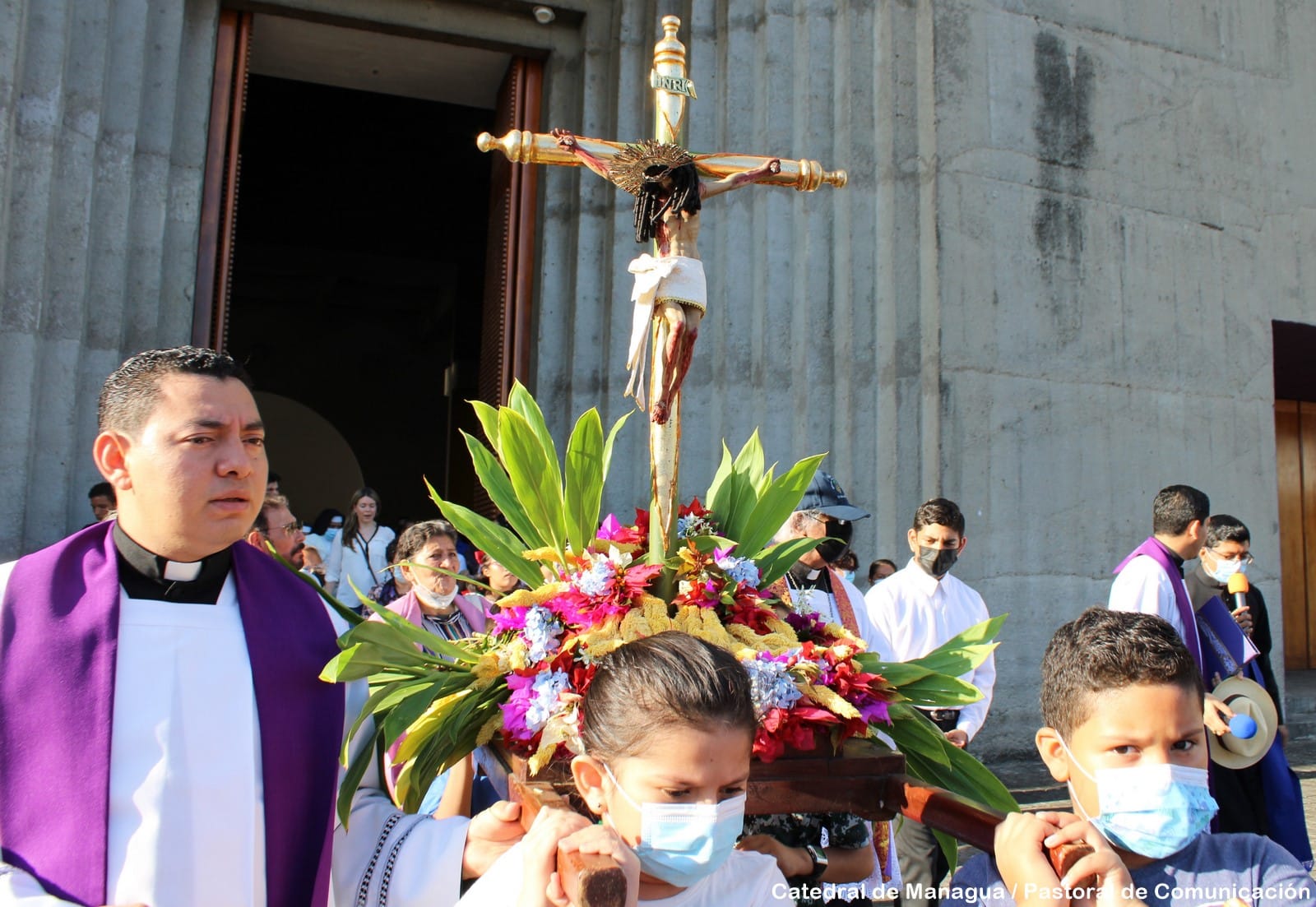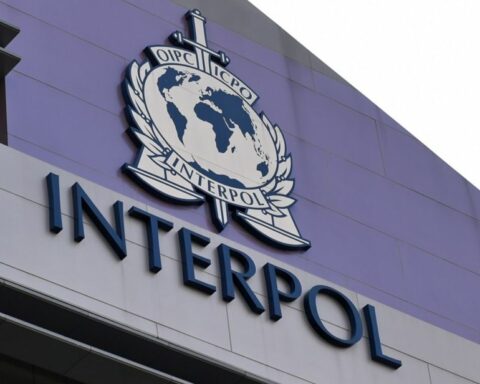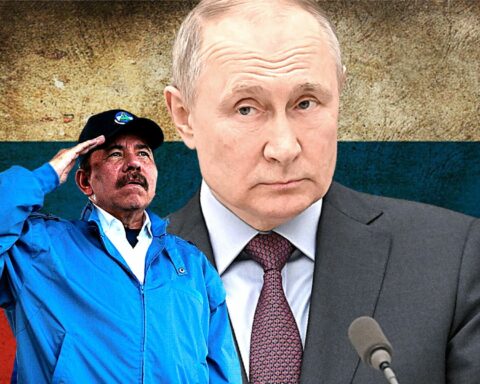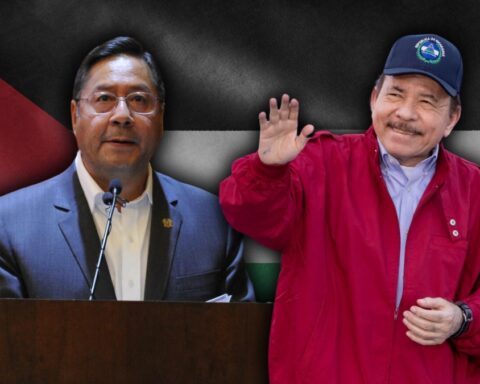The Via Crucis procession, celebrated with devotion during the 40 days before Holy Week, took place in 2023 under strong police restrictions imposed by the Daniel Ortega regime, considered unprecedented in recent Nicaraguan history.
A monitoring on the Facebook pages of parishes located in the departments of Managua, Masaya, Rivas, Madriz, Chinandega and León, showed that the parishioners lived their faith mobilizing inside the temples, or they did it in the patio, as it happened in the Managua Cathedral to comply with the order of the regime’s Police.
The other characteristic was the unanimous silence of the Catholic hierarchy, with the exception of the auxiliary bishop of Managua, Silvio José Báez, who rejected the measure from his Twitter account, highlighting the presence of the crucified in each act of struggle that is carried out in favor of the truth and justice.
The dictatorship of #Nicaragua has prohibited the viacrucis in the street. What they will not be able to prevent is that the Crucified One reveals his victory in every act of solidarity, in every fight for truth and justice and in every effort to defend the dignity of people. pic.twitter.com/4zsHSkSqRS
— Silvio José Báez (@silviojbaez) February 25, 2023
Báez has been in exile since 2019 on the advice of Pope Francis, after receiving threats from Sandinista fanatics. On February 15, he was stripped of his nationality by the dictatorship, declared a fugitive from justice and a “traitor to the homeland”, along with a group of 93 people including intellectuals, social leaders, economists and politicians.
Nicaraguan researcher Martha Patricia Molina, who published a report on religious persecution in Nicaragua, regretted the decision of the State to prohibit the Via Crucis and maintained that it is another attack on the Catholic Church. Currently, of the last 35 political prisoners remaining in Nicaragua, three are religious, after the exile of 222 prisoners of conscience to the United States on February 9.
First Way of the Cross of Lent 2023 intramural in Managua Cathedral. pic.twitter.com/bfuYbIJRVM
— Elizabeth Romero (@Eliz_Romero) February 25, 2023
The Bishop of Matagalpa, Rolando Álvarez, is in a security cell in the La Modelo prison, after he refused to leave Nicaragua and the justice system decided to sentence him to 26 years and four months in prison.
The priest Manuel García and Monsignor Leonardo Urbina, from Nandaime and Boaco, respectively, are also imprisoned. In these two cases, they were convicted of committing alleged common crimes in processes lacking guarantees, according to the opinion of independent lawyers, and even in the situation of the first, the woman who accused him of violence for having retracted her statement is also detained.
“President Daniel Ortega has the heartless and illogical intention of eliminating the Catholic faith from the country because he knows that the Catholic Church is the only credible, respected and loved institution that, in the light of the gospel, is announcing and denouncing all the arbitrariness and evil that it commits. the dictatorship,” Molina explained.
This is how they lived their faith in these Catholic temples
After brief monitoring by CONFIDENTIALin social networks, it can be specified how the believers lived their Catholic faith through the Via Crucis in the following temples:
- The Cathedral of Managua: the procession took place in the patio with the presence of the faithful. In the images released by the Facebook page, it can be seen that the activity was presided over by the archbishop, Cardinal Leopoldo Brenes Solórzano.
- The church Santa María de los Ángeles, in Managua, it even published that on February 24 she was visited by inspector Orlando Cano, who was in charge of informing them of the Prohibition of Stations of the Cross and other Lenten and Holy Week activities.
- San Miguel de Masaya Parish The Via Crucis celebration inside the temple was called on social networks.
- The procession was also made in the La Purísima Pacayita Parish from masaya
- In the Santa Catalina de Alejandría church, in Catarinathey were allowed to mobilize in the surrounding block as can be seen in the video of the parish.
- The parishioners of the “Saint Peter the Apostle” in the department of Rivas, belonging to the Diocese of GranadaThey also lived their faith in the same circumstances: inside the churchyard.
- The priest Julián Duarte Osorio of the Sanctuary of Our Lady of Guadalupe in Chinandega said that, by order of the Police, a around the temple in an area of one block.
“This prohibition is undoubtedly painful for all the Catholic people who have celebrated Lent for centuries, it also shows that the dictatorship has no intention of dialogue. But, despite this pain, the Catholic people will pray more and that will make us more united than ever, these actions strengthen us more,” said researcher Martha Patricia Molina.








